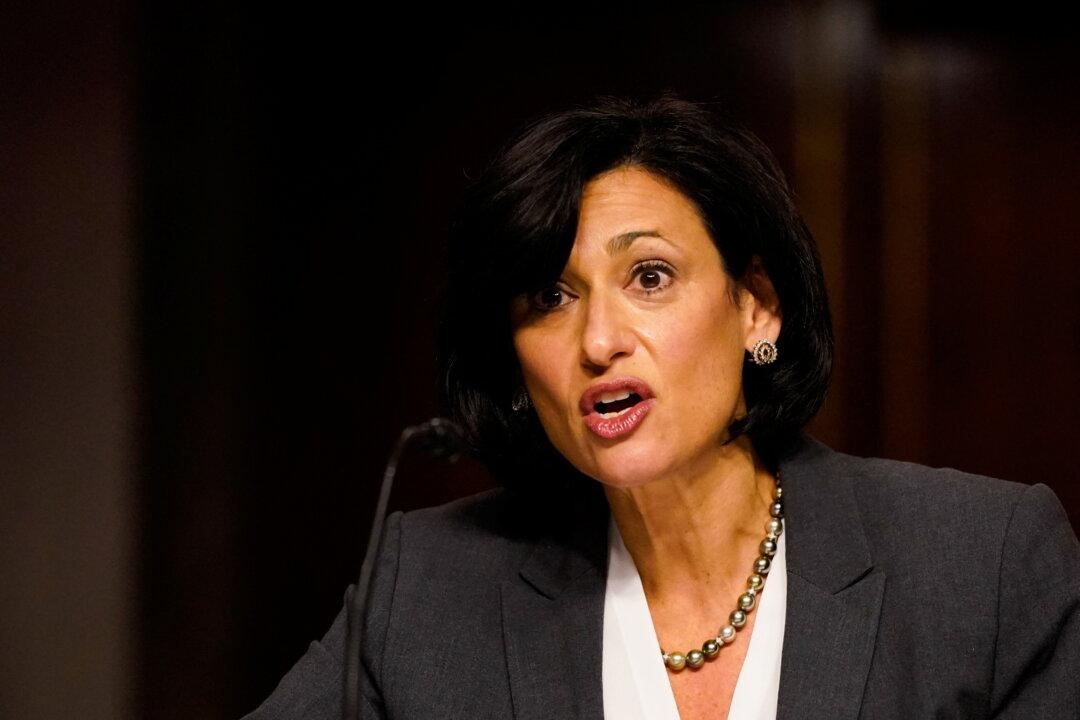Centers for Disease Control and Prevention (CDC) Director Rochelle Walensky said that her agency is looking to change the language regarding COVID-19 vaccines.
When asked about why the health agency is not changing the definition to include whether one is fully vaccinated with a booster dose or not, Walensky told reporters the CDC is working to “pivot the language to make sure that everybody is as up to date with their COVID-19 vaccines as they personally could be, should be, based on when they got their last vaccine.”





